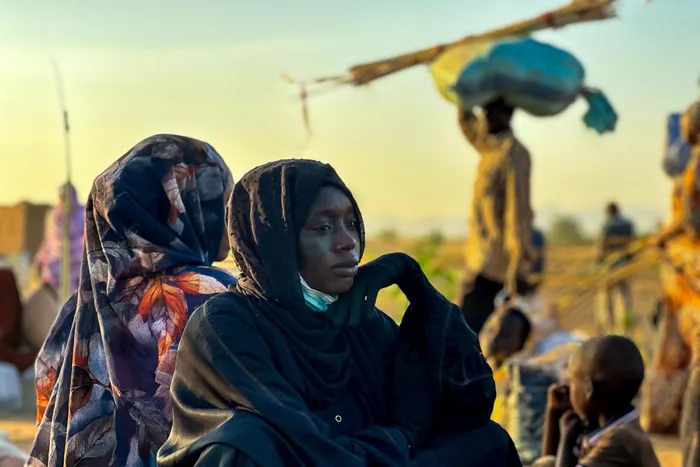UN Women demands immediate action to safeguard 300,000 women and girls in El Fasher, Sudan

A displaced Sudanese woman rests in Tawila, in the country's war-torn western Darfur region after fleeing El-Fasher following the city’s fall to the Rapid Support Forces (RSF). Many more women and children remain trapped in El Fasher according to UN Women.
Image: AFP
UN Women has expressed deep alarm and condemned, in the strongest possible terms, the ongoing attacks against women, girls, and civilians in and around El Fasher, Sudan.
“For more than 500 days, women and girls have endured siege, bombardment, and deliberate starvation,” the organisation said.
“Reports indicate that close to 300,000 women and girls (half of the 575,000 people) are trapped, surviving on animal feed and leaves, and facing acute hunger and insecurity.”
The agency warned that the takeover of El Fasher by the Rapid Support Forces (RSF) marks “an escalation from siege to mass atrocity including killings, rape, gang rape, sexual slavery, forced marriage, and abductions of women and girls.”
It said according to local medical networks, including the Sudan Doctors Union, more than 2,000 civilians have reportedly been killed in recent days, among them women and girls. On October 30, nearly 500 patients and their companions were reportedly killed during attacks on the Saudi Maternity Hospital, where many women had sought safety and medical care. There are also credible reports of attacks on health workers.
The UN said satellite and video evidence indicate burned homes, desecrated bodies, and mass graves, while communications blackouts continue to hinder verification and humanitarian access, preventing life-saving assistance from reaching women and girls in need.
Thousands of women and girls have reportedly fled toward Tawila Locality, which now hosts more than 300,000 women and girls who are internally displaced, over half of the 652,000 internally displaced people in North Darfur where acute shortages of food, shelter, and medical care persist amid the humanitarian crisis.
UN Women called on all parties and international actors to act immediately to:
- Cease all violence and attacks against women, girls, and civilians in El Fasher and ensure their protection.
- Guarantee unimpeded, safe, and sustained humanitarian access to deliver life-saving assistance to those trapped in the fighting.
- Ensure full protection and safe passage for women and girls seeking to flee the violence.
- Ensure accountability for all atrocities, including the horrific sexual violence experienced by women and girls, in line with international humanitarian and human rights law.
- Increase funding for humanitarian appeals and women-led organisations – which remain perilously under-resourced – to enable life-saving support to reach women and girls in need.
“Women are not only victims of this war, they are also agents of peace, resilience, and recovery,” the statement added. “Their leadership and voices must be at the centre of all humanitarian, peacebuilding, and reconstruction efforts to restore peace and dignity in Darfur and across Sudan.”
The conflict in Sudan began in April 2023 when fighting broke out between the Sudanese Armed Forces and the RSF over control of the country. The clashes, which have since spread nationwide, have devastated Darfur, where the RSF has been accused of ethnic-based massacres and mass displacement. El Fasher, the last major city in Darfur under army control, has faced months of siege, with the UN warning that hundreds of thousands are at risk of starvation and indiscriminate violence.
Related Topics: